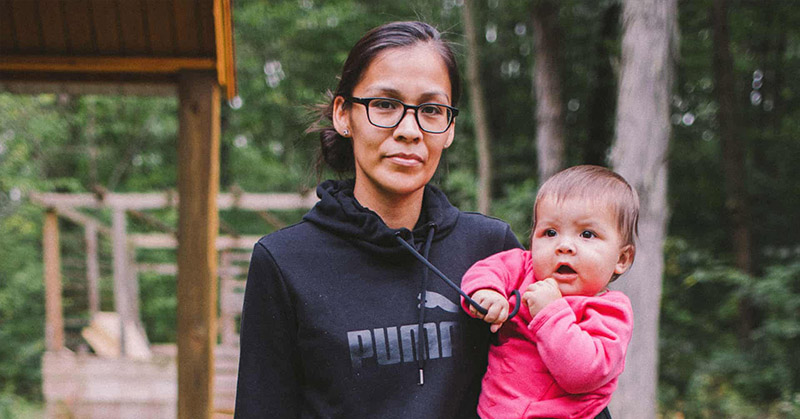It’s 2019, and if you don’t already know that the bottled water industry is one of the worst contributors to plastic pollution, where have you been? Single-use plastic bottles are meant to be recycled but often end up as microplastics in our oceans (and eventually our foods!). Reusing plastic water bottles can also be a health danger- since many forms of plastic can leach toxic chemicals into water over a period of time.
But quitting plastic water bottles isn’t only a step in the right direction for our planet and for your health, it could put pressure on water bottle corporations like Nestlé to stop taking advantage of natural resources which many people quite close to home barely get access to as it is.
“There is nothing more important than clean water, yet at any given time there are more than 100 drinking water advisories in First Nations across Canada. The lack of clean, safe drinking water in First Nations is one of the greatest violations of the UN-recognized human rights to water and sanitation.” (The Council of Canadians)
Nestlé has not always publicly acknowledged the basic human right to clean water. “One perspective – which I would call extreme – is that water should be declared a human right … The other view is that water is a grocery product. And just as every other product, it should have a market value,” said former Nestlé CEO Peter Brabeck-Letmathe in a 2005 documentary.
Since those infamous words, Nestlé has apparently changed its tune. The company states as part of its stewardship policy:
“Water is a resource we all share. Working alongside neighbors and other stakeholders with common interests is the only way we can address the complex challenges associated with water stewardship. We believe that proactive, long-term engagement and partnerships with a wide range of stakeholders can help to define, implement and evaluate solutions to the complex environmental challenges that we face.” (Nestlé)
Dawn Martin-Hill, an indigenous studies professor at McMaster University, has lived on the Grand River reserve for 35 years, but has only recently received access to drinkable tap water. Many of her neighbors continue to live with boil-water advisories. Martin-Hill believes the lack of hygienic water sources has contributed to severe health issues in her community. “Pretty much my entire family has been wiped out by cancer,” she told CBC News.
Mother and university student, Iokarenhtha Thomas, says a lack of clean water has resulted in her infant son suffering from rashes. Thomas hasn’t had access to running water since she was 16. None of her 5 children have ever lived in a house with plumbing. “You grow up being treated unfairly,” she says. (The Guardian)
Countless people, including young children, suffer from a severe drought of potable water- many just minutes from suburbs with perfectly functional water and plumbing systems. Nearby, Nestlé is pumping millions of liters of fresh spring water to bottle and sell. In the case of Aberfoyle, Ontario, Nestlé continued to extract water after their permit to do so had expired. (The Council of Canadians)
Many men and women like Thomas find themselves driving into nearby cities to purchase jugs of water for bathing and cases of water bottles to drink and cook with. (The Guardian)
According to the Canadian government, the number of long-term drinking water advisories has been reduced from over 100 in 2016 to 57 in early 2019. Nevertheless, many indigenous communities face short-term water advisories around the country. As of April 14, 2019, there were 35 short-term DWAs in place, not counting those within British Columbia and the Saskatoon Tribal Council. Many community members and social justice advocates insist the progress simply isn’t happening fast enough.
This year, competing bottled water brands found themselves in ‘hot water’ of their own. A CBC News report in March, 2019 revealed that big-name brands including Coca-Cola’s Dasani, have received multiple complaints about bottled water smelling “foul”, “like old socks”, “urine” and even “like diarrhea”. A study found several facilities were operating under “filthy conditions”. (CBC)
But Big Water Bottle insisted nothing was amiss. “Yes, there were issues, but all of them were resolved. Health Canada and the CFIA do a great job ensuring bottled water sold is safe. And this report confirms it,” Elizabeth Griswold, executive director of the Canadian Bottled Water Association, told CBC News.
You can sign a petition to Prime Minister Justin Trudeau to resolve the long-standing drinking water advisories among indigenous communities. But most of all, you can vote with your dollar. If you’re still buying bottled water, stop. Now.
Edit Oct 7, 2020: The petition has since been removed.

